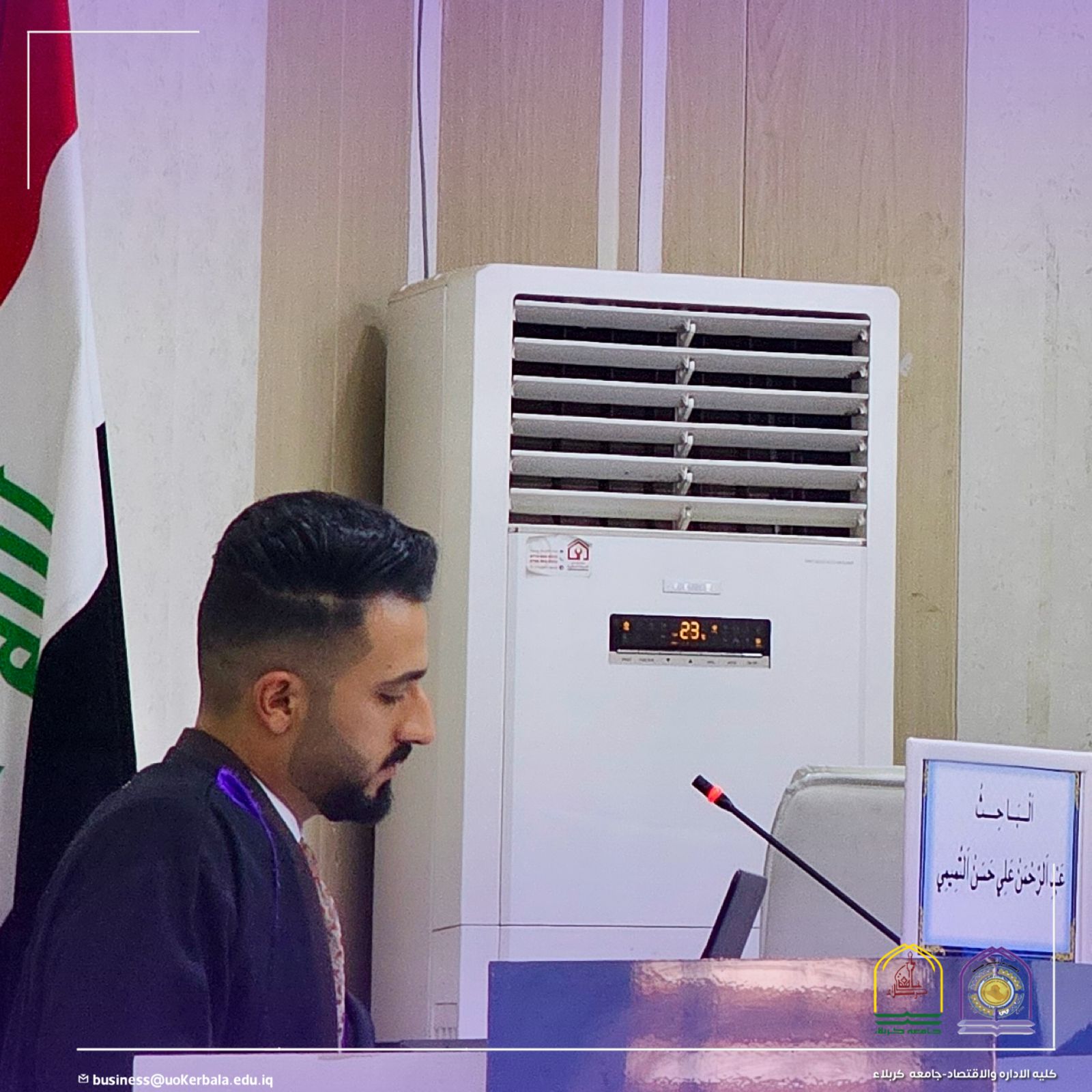The impact of financial soundness indicators on some monetary variables – the Iraqi economy a case study
A Thesis To the Council of the College of Administration and Economics- University of Karbala, which is part of the requirements for obtaining a master’s degree in economic sciences
Submitted By
Abdul Rahman Ali Hassan Kazem
Supervised by
Dr
Khudair Abbas Hussein Al-Waeli
Abstract:-
Financial soundness indicators stand out among the important topics that have a role in predicting the risks that concern the agency and financial organizations, as well as crises in their cases. They are among the tools that must be taken care of to strengthen the milk, and they are not considered part of the components that deserve financial and monetary value. In this study, the spotlight was highlighted. On the most important of these indicators, which are (the index, profitability, and capital index, there are the wonderful assets of the administrators and the sensitivity of Belmark), and how these indicators can be in the private sector and the monetary variables, as many weak Iraqis who need to achieve financial justice and be able to achieve financial security have discovered them. An advanced method that helps diagnose these problems.
The research was based on the hypothesis that there is a significant impact of financial safety indicators on monetary variables (money supply, credit, interest rate) as well as the existence of causal relationships between them. The research aimed to achieve a set of objectives represented by clarifying the concept of financial safety indicators and explaining the status of the financial and banking system of the Iraqi economy through Financial safety indicators and knowing the effects that changes in financial safety indicators have on monetary variables. To achieve the goal, the research was divided into three chapters. The first chapter dealt with two sections, the first included the conceptual framework of financial safety and its indicators, and the second included the conceptual framework of monetary policy and some monetary variables and the impact of financial safety indicators on them.
The second chapter dealt with two sections, the first included an analysis of financial safety indicators in Iraq, the second included an analysis of monetary variables in Iraq, and the third chapter dealt with the standard model for research.
A number of conclusions were reached, the most important of which is the presence of a significant impact of some financial safety indicators on monetary variables. Financial safety is of great importance in maintaining the distinctive performance of banks and increasing the banks’ ability to confront crises. A number of recommendations were presented, the most important of which is the need to pay attention to the financial safety of banks in order to identify and strengthen weak points, and to follow modern and advanced mechanisms and strategies in banking work in a way that improves the performance of banks, maintains their financial safety, and develops their capabilities to confront crises.































































